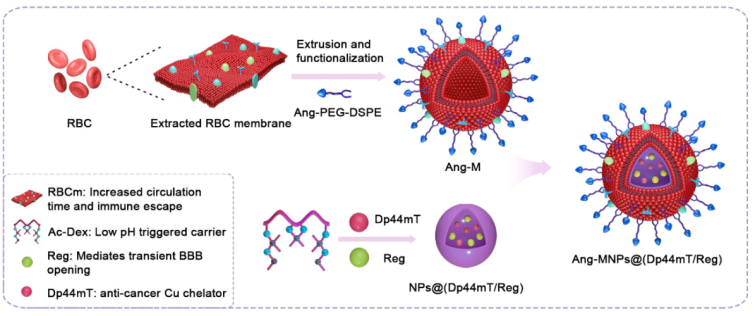The copper (Cu) chelator, di-2-pyridylketone-4,4-dimethyl-3-thiosemicarbazone (Dp44mT) attracted much interest due to its potent anti-tumor activity mediated by the formation of a highly redox-active Cu-Dp44mT complex. However, its translational potential was limited by the development of toxicity in animal models reflecting poor selectivity. The laboratory overcame the limitations of Dp44mT by incorporating it in new Angiopep-2 decorated biomimetic nanoparticles co-loaded with the BBB regulator Regadenoson to improve its blood-brain barrier (BBB)-penetration and cancer selectivity. The present study also uniquely employed CuII-ATSM to develop a Cu-enriched U87MG tumor model designed to enhance the therapeutic effect of Dp44mT mediated by Cu chelation, ROS and apoptosis induction. The nanomedicine effectively inhibited tumor growth and prolonged the survival of the tumor-bearing mice without evident side effects.
The research paper was published in Biomaterials 2022, 289, 121760 (IF=15.305). Dr. Muhammad Ismail, Ph.D. candidate Wen Yang and M.D. student Yanfei Li are the first authors, and Prof. Shi and Prof. David B. Lovejoy are the co-corresponding authors.

Paper link: https://doi.org/10.1016/j.biomaterials.2022.121760



